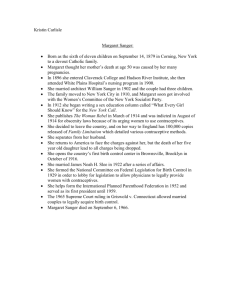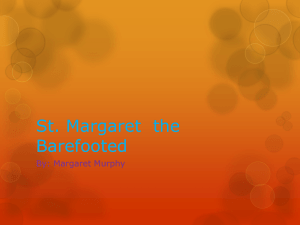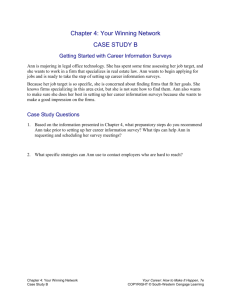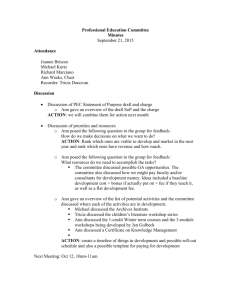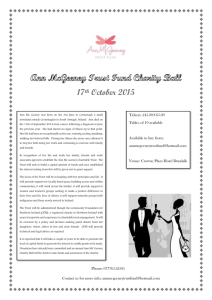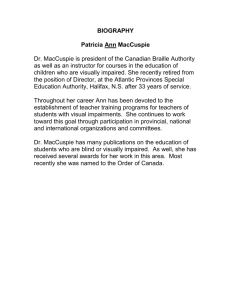File
advertisement
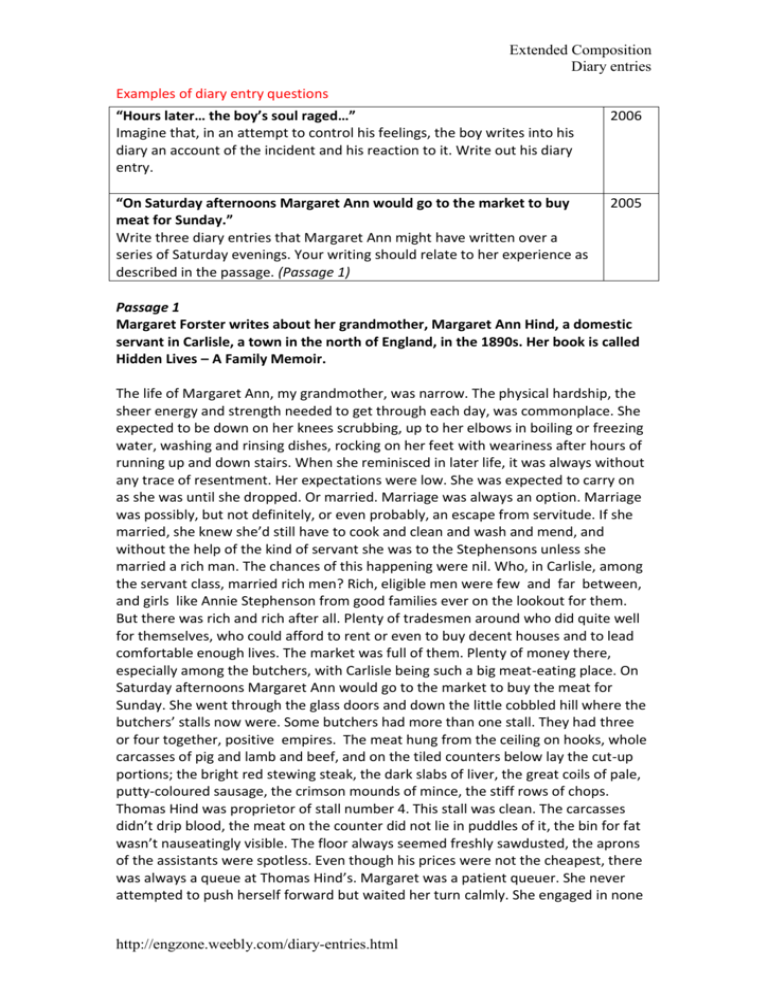
Extended Composition Diary entries Examples of diary entry questions “Hours later… the boy’s soul raged…” Imagine that, in an attempt to control his feelings, the boy writes into his diary an account of the incident and his reaction to it. Write out his diary entry. 2006 “On Saturday afternoons Margaret Ann would go to the market to buy meat for Sunday.” Write three diary entries that Margaret Ann might have written over a series of Saturday evenings. Your writing should relate to her experience as described in the passage. (Passage 1) 2005 Passage 1 Margaret Forster writes about her grandmother, Margaret Ann Hind, a domestic servant in Carlisle, a town in the north of England, in the 1890s. Her book is called Hidden Lives – A Family Memoir. The life of Margaret Ann, my grandmother, was narrow. The physical hardship, the sheer energy and strength needed to get through each day, was commonplace. She expected to be down on her knees scrubbing, up to her elbows in boiling or freezing water, washing and rinsing dishes, rocking on her feet with weariness after hours of running up and down stairs. When she reminisced in later life, it was always without any trace of resentment. Her expectations were low. She was expected to carry on as she was until she dropped. Or married. Marriage was always an option. Marriage was possibly, but not definitely, or even probably, an escape from servitude. If she married, she knew she’d still have to cook and clean and wash and mend, and without the help of the kind of servant she was to the Stephensons unless she married a rich man. The chances of this happening were nil. Who, in Carlisle, among the servant class, married rich men? Rich, eligible men were few and far between, and girls like Annie Stephenson from good families ever on the lookout for them. But there was rich and rich after all. Plenty of tradesmen around who did quite well for themselves, who could afford to rent or even to buy decent houses and to lead comfortable enough lives. The market was full of them. Plenty of money there, especially among the butchers, with Carlisle being such a big meat-eating place. On Saturday afternoons Margaret Ann would go to the market to buy the meat for Sunday. She went through the glass doors and down the little cobbled hill where the butchers’ stalls now were. Some butchers had more than one stall. They had three or four together, positive empires. The meat hung from the ceiling on hooks, whole carcasses of pig and lamb and beef, and on the tiled counters below lay the cut-up portions; the bright red stewing steak, the dark slabs of liver, the great coils of pale, putty-coloured sausage, the crimson mounds of mince, the stiff rows of chops. Thomas Hind was proprietor of stall number 4. This stall was clean. The carcasses didn’t drip blood, the meat on the counter did not lie in puddles of it, the bin for fat wasn’t nauseatingly visible. The floor always seemed freshly sawdusted, the aprons of the assistants were spotless. Even though his prices were not the cheapest, there was always a queue at Thomas Hind’s. Margaret was a patient queuer. She never attempted to push herself forward but waited her turn calmly. She engaged in none http://engzone.weebly.com/diary-entries.html Extended Composition Diary entries of the banter that other customers seemed to like. She stated her requirement and that was that beyond a please and thank you. These were exactly the qualities which aroused Thomas Hind’s interest. He noticed her precisely because of her curious quality of stillness. In 1893, when she first began buying meat from him, he was thirty-five years old and unmarried. His father had been a butcher and so had his grandfather, and as the only son he was always expected to take over the family business. His father had died when Thomas was a child and his mother, Jane, had become a butcher herself in order to keep the business going for Thomas to inherit. His debt to her was strong and he acknowledged it by now supporting not just her but two of his three sisters (the third had married). He was prosperous enough by then to marry. He was notoriously hard to satisfy and was teased about his high standards by his sisters who despaired of him ever approving of any girl. For four years he observed Margaret Ann quite contentedly, and then, when his mother died in 1897, decided the time had come for him to court her very seriously. Nothing impetuous about Tom. So it was a slow affair, this courtship, three years of best boned and rolled sirloin, shoulder of lamb, leg of pork, three years of pounds of sausage, best back bacon, ham on the bone. A lot of meat, a lot of pleasantries, a lot of cap-doffing on Tom’s part and head-inclining on Margaret Ann’s. One Saturday, towards the end of the afternoon, when there were no assistants to hear and smirk, no customer other than Margaret Ann to hear and speculate, he asked her if she would care to go with him and his sisters out to Burgh marsh for a breath of sea air. He was very much afraid she would refuse, even be offended, but no, she smiled and said she knew his sisters from church and would be glad to accompany them if she could get time off. http://engzone.weebly.com/diary-entries.html

